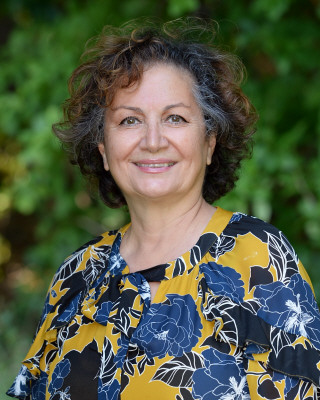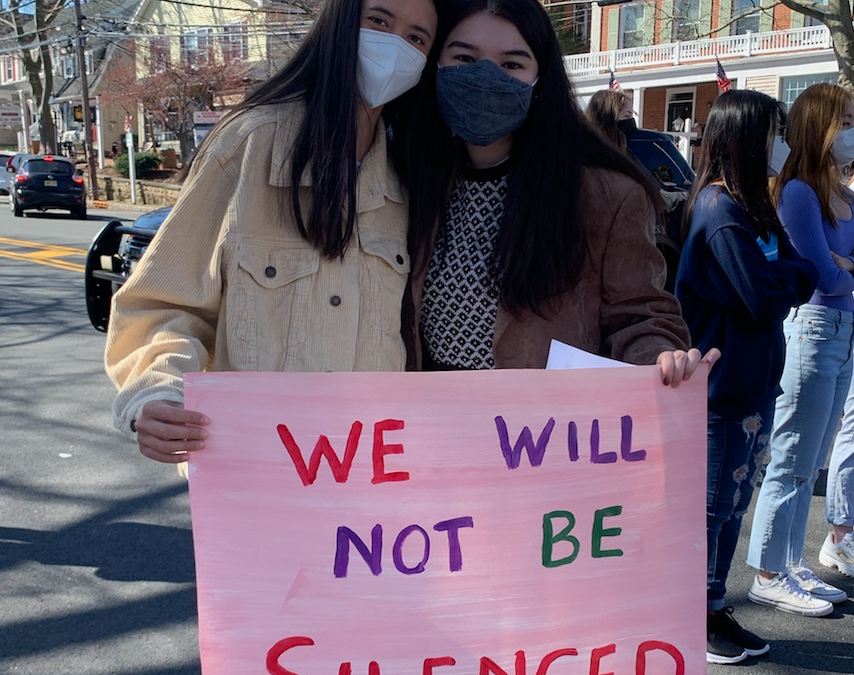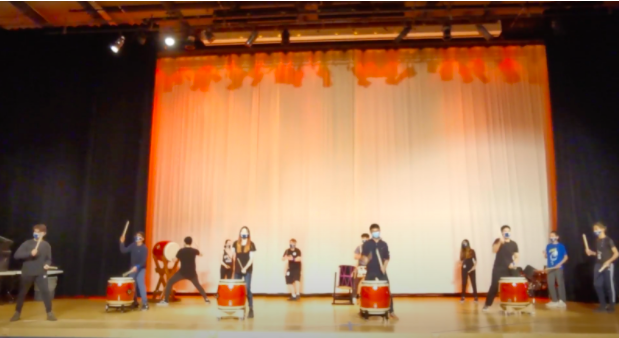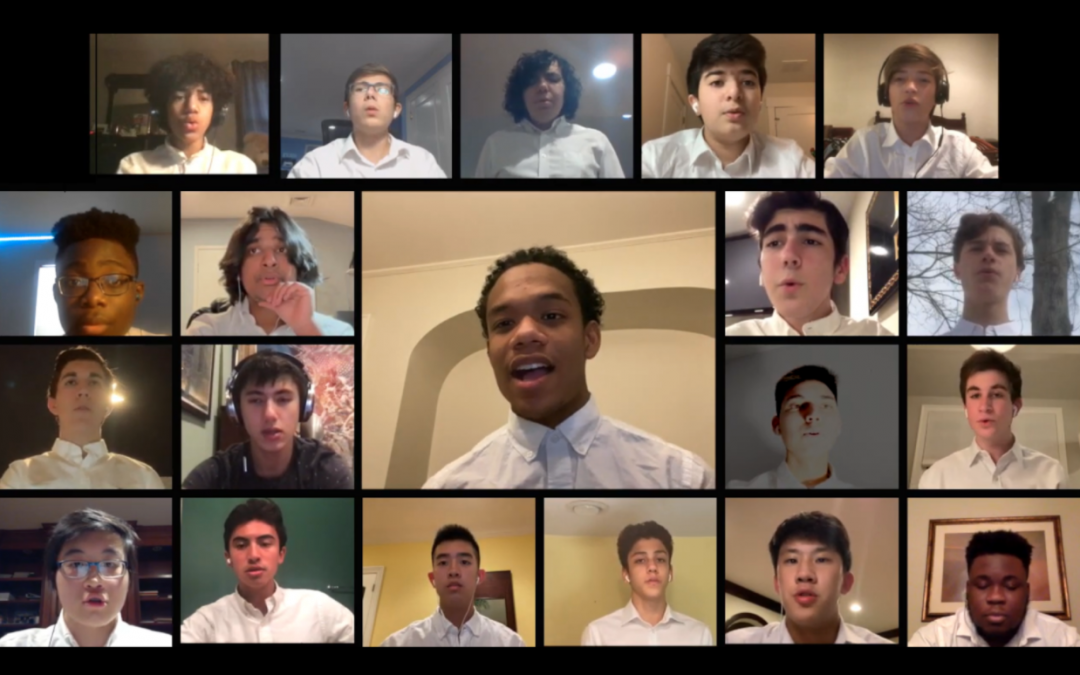
Jun 2, 2021 | Emma Drzala, Faculty Departures
By Emma Drzala (V)
After working at Pingry for thirteen years, Mrs. Homa Watts has announced that she will be stepping down from her position as a second grade teacher. Throughout her time at Pingry, Mrs. Watts has taught kindergarten, first grade, and second grade.
Mrs. Watts earned her BS from Tehran University in Iran, and her Masters Degree from Western Illinois University. After completing her education, Mrs. Watts taught at both the Sundance School in North Plainfield and the Kent Place School in Summit before teaching at Pingry starting in 2006. In 2013, Mrs. Watts opted to take two years off to live in the United Arab Emirates. She continued her teaching career in the UAE at a local school for the first year and privately tutored for the second year. She returned to Pingry in 2015.
Mrs. Watts has greatly enjoyed her time teaching at Pingry. She says that she has “never regretted making the choice of being a teacher. [She] considers teaching an honorable profession” and “would like to help new teachers to become even better teachers than they already are. Mentoring young teachers is not only [her] passion, it is [her] responsibility.” Mrs. Watts looks forward to spending time with her grandchildren and traveling throughout Europe and Canada with her husband and Pingry music teacher, Dr. Kenneth Watts. Looking back at her time at Pingry, Mrs. Watts cherishes the memories she has made with her students and colleagues. One of her most notable memories was when a family of foxes declared the area under a slide as their own, and consequently, students were not allowed in the playground for nearly two months. She believes that instances like these show how seemingly insignificant moments make the biggest impact.
Mrs. Watts’ retirement is a bittersweet occasion for many of us at Pingry. She is a great teacher who leaves behind a monumental legacy, and she has touched the lives of a generation of students for over fifteen years. As a former student of hers, I look forward to seeing her again and hearing about all of her future endeavors. We thank you for your dedication to the students at Pingry and we will miss you greatly, Mrs. Watts!

Jun 2, 2021 | Faculty Departures
By Kelly Cao (III)
After two years, the Pingry Faculty must sadly say goodbye to Ms. Haley Kost, who has made the decision to depart Pingry to be closer with family. During her tenure, Ms. Kost has taught Form I history.
Before arriving at Pingry, Ms. Kost worked at King’s Academy in Jordan, teaching tenth, eleventh, and twelfth-grade History, as well as Economics and English. She decided to join Pingry because of its “innovative middle school” and “great community.” Upon her arrival, she immersed herself in Pingry life, becoming the Rainbow Club advisor and helping with the Debate Club. She additionally coached the soccer and basketball teams.
Originally from Chicago, Ms. Kost discovered her love for teaching in high school after participating in a program that taught younger students a variety of instruments. She majored in Education at Northwestern University, solidifying her interest in history despite her initial choice to pursue music. Ms. Kost found history to be her most difficult subject; however, she also found it to be the most interesting, and as a result, she now understands learning history enables people to “reflect and see how they can impact our future.” After discovering such passion for history, Ms. Kost graduated with a Bachelor’s degree in Secondary Education with a focus on history.
Her favorite memories from her time at the Middle School are the events that she attended, such as the Middle School faculty and student basketball game. She will miss the students’ energy and questions the most, which contributed to her growth as a teacher. Ms. Kost is very grateful for the faculty and students, who have welcomed and supported her throughout her tenure. We will miss you, Ms. Kost, and we wish you all the best in your future endeavors!
Jun 2, 2021 | Emma Drzala, Faculty Departures
By Emma Drzala (V)
As the 2020-2021 school year comes to a close, Ms. Patty Finn has announced her retirement from the Lower School. After teaching at Pingry for thirty-seven years, Ms. Finn describes the Short Hills music room as her “happy place.” She has worked with students ranging from Kindergarten to Grade 3, as well as with Grade 4 students learning the flute and Grade 5 handbell players. During her years at Pingry, Ms. Finn has worked with numerous colleagues in the Arts Department, including fellow lower school music teachers Mr. Thomas Berdos and Ms. Emma Liu, and high school teachers Dr. Andrew Moore and Mr. Jay Winston.
Prior to working at Pingry, Ms. Finn studied at both Douglass College and Rutgers Graduate School for a degree in musical education. Her studies were augmented by multiple Orff workshops, a session at the College of Piping on Prince Edward Island, and additional classes at the Gaelic College in Nova Scotia. These additional courses serve as proof to her students that a person’s education is not limited to just college and graduate school: there is always more to learn. This past year, Ms. Finn has played the flute in her church, as well as continuing to teach music in her local library. She has found herself giving private lessons to those looking to explore and expand their musical capabilities.
Looking back, Ms. Finn found it hard to choose a single moment that defined her time at Pingry, but she said she will always think back fondly to the annual performance of “This Day of Peace” during the holiday concert. Ms. Finn explained her love for this performance, expressing that “there is nothing better than the voices of 300 children raised in song.” She will forever cherish the relationships she forged with the students and faculty at Pingry and considers herself fortunate to “have spent [her] life making music.” As a former student of Ms. Finn’s, I will say that she will be greatly missed as a valued member of the Pingry community, and we all wish her well in her future endeavors!

Jun 2, 2021 | Faculty Departures
By Julia Eng (III)
After working for almost ten years at the Basking Ridge campus, Mrs. Schifano is leaving Pingry. Before joining the school, she received her B.A. at Villanova University and shortly thereafter began working at a talent agency with newscasters, producers, and even the “Real Housewives” media franchise.
She originally heard about an opening at Pingry through her sister-in-law, an alumnus, and began working with the community in 2011. During the 2020-2021 school year, Mrs. Schifano served as the Director of Middle and Upper School Admission and Director of Financial Aid, working alongside Ms. Sheila Ramirez at the Lower School. Her goal was to make the admissions process as exciting and seamless as possible, often asking herself, “How do we make it interesting for both the students and the families?” In addition, Mrs. Schifano is the Form III Dean, planning events for freshmen students and helping them navigate their first year of high school.
When asked about what she’ll miss most about Pingry, Mrs. Schifano said, “I’m going to miss… working with people who are happy to be here. It’s exciting being able to enjoy what you do.” To her, the experience is incredibly rewarding. Additionally, she enjoys watching kids grow and learn at school. “It’s amazing to watch the students transform.”
Mrs. Schifano is looking forward to the next chapter in her life, which includes working for her family business and stepping back into the business world. When asked about what message she wanted to leave the Pingry community with, she said, “Be open to change… The more open you are, the more opportunities unveil themselves to you. Just know they’re out there, you just have to set [doubt] aside and trust what you think.”
We thank Mrs. Schifano for her work at Pingry and wish her the best of luck!

Jun 2, 2021 | Opinion
By Vared Shmuler (IV)
Over the past several months, Amazon has experienced a prolonged period of persecution due to their alleged violation of antitrust laws. However, before diving into the subject matter, there are several questions and factors that must be addressed. Firstly, what is an antitrust law? Could it be a breach of a contract? Or is it a violation of trust between people? To the surprise of many, the term antitrust is not a cognate. Rather, this term refers to the regulation of the concentration of economic power for a single company, particularly with regard to monopolies. More specifically, an antitrust law can be classified as a statute that is specifically developed by the government to protect consumer interest and to ensure fair competition in any given sector of the American economy. However, in more recent times, Amazon, and their expansive empire of goods and services, has been open to an investigation concerning their treatment of third-party sellers and, more importantly, their possible neglect of antitrust regulations.
Although Amazon is most notably known for their extensive online retail store, they also provide a myriad of other utilities. For example, they deliver their streaming and newly acquired food services via Whole Foods. However, in which of these services could they be persecuted for their violation of terms? Due to the explanation of an antitrust law that states that any company must adhere to non-predatory business practices, Amazon should be no exception. Their mass amount of popularity forces small businesses to use the Amazon platform to sell their product with the hope of sales and publicity. However, Amazon indirectly destroys their business’ credibility and strengthens their undesired dependence on the platform. Not only are these smaller corporations unable to compete with Amazon’s vast online presence, but surcharges and fees ever so slightly pick away at the profits of those that choose to reluctantly comply, further shattering their likelihood of surviving the corporate food chain. Whereas in the sector of streaming services, the situation dilutes. With competitors such as Hulu, Netflix, HBO Max, Disney Plus, and several others, Amazon Video is not at all in control or infringing on the terms of antitrust laws. In short, Amazon’s reign of online services can be limited to only their retail and delivery platform as there are sufficient competitors in all other categories of Amazon’s domain. However, based on the information stated above, the question that remains is whether or not anything will happen to the company of Amazon? Will they be persecuted in a court of law or continue their technological advancements?
Although Amazon’s overall holdings in between sectors balance one another, it does not outweigh the violation within the boundaries of Amazon’s online retail and shipping services. Based solely on the information provided, regarding Amazon’s predatory business practices and methods, I believe that if Amazon is not in violation of antitrust laws now, they will be in the near future. They not only hold the majority of online sales and have millions of loyal customers, but they also create an inhospitable environment for small businesses. They drive away many sales opportunities from the lesser known and have extremely competitive prices, leaving consumers wondering whether or not they should buy the product on Amazon. On a more personal level, I have heard, on countless occasions, questions of whether any given product will be less costly or ship faster on Amazon in comparison to a third-party seller, which, as every member of the clientele knows, is considered impractical. These examples simply show the extent to which Amazon’s influence reaches. In short, I believe that due to Amazon’s predatory business practices that they are in violation of the set antitrust laws. As a result, they will face repercussions for their corporate actions.

Apr 21, 2021 | Monica Chan, School News, Sidebar News
By Monica Chan (VI)
Over the course of the last three months, there have been a string of violent attacks and murders against members of the Asian-American and Pacific Islander (AAPI) community across the country, bringing about deep pain and grief to their families and the AAPI community at large. These crimes are by no means a new topic as hate crimes against Asian-Americans have been on the rise ever since the beginning of the pandemic; however, the successive violent murders and attacks in recent months have caught national attention due to their shocking severity.
On March 16, eight people were murdered in a mass shooting across multiple Asian-owned massage parlors in Atlanta, Georgia: six of the eight victims were Asian-American. More is being revealed about the victims and their individual stories, and the United States flags were ordered at half-staff until March 22 to honor the victims: Soon Chung Park, Hyun Jung Grant, Suncha Kim, Yong Ae Yue, Delaina Ashley Yaun, Xiaojie Tan, Daoyou Feng, and Paul Andre Michels. While this is by far the most lethal event in the string of anti-Asian crimes that have occurred over the last year, it certainly is not the first. The attacks against Vicha Ratanapakdee, who was killed while walking outside in San Francisco; Ee Lee, who was sexually assaulted and then murdered in Milwaukee; and Noel Quintana, who was slashed across the face with a knife in the New York City subway, are just a few of many.
These attacks and the lack of backlash against them have left many Asian-Americans feeling angered and cheated by a judicial system that does not seem to defend them. Police departments across the country have announced multiple times that many of these attacks will not be investigated as hate crimes. Because of this, AAPI leaders have been organizing multiple rallies and vigils in New York City, Oakland, Atlanta, and other cities. At Pingry, there have been multiple forums for Asian and non-Asian students to discuss and process these events, including a forum planned for Asian parents and caregivers to speak with Diversity, Equity, and Inclusion (DEI) Director Mr. Gilbert Olvera and Head of School Mr. Matt Levinson. The Asian Student Union has been working very closely with Mr. Olvera and Assistant Director of DEI Ms. Alexa Lopez to ensure that the Asian community at Pingry feels heard and included. Jeremy Lin (VI), a co-founder of the Asian Student Union, said, “Whether it is making a heartfelt speech on stage in front of the entire school to holding meetings for our community to come together and discuss these issues, we are trying to spark that same flame and passion in our underclassmen. In Asian cultures, the concept of going against authority and causing trouble is frowned upon; however, our actions as ASU leaders represent the risks we are willing to take. I hope this inspires students to take risks, go outside of their comfort zones to fight for what they truly believe in.” At the second school-wide meeting addressing the recent rise in violent hate crimes, there were over 300 students and faculty in attendance.
It is moving to see how many people we have supporting us, whether they are Asian/Asian-Americans themselves or allies. Lin adds that he hopes “to come back and see the same interest in social justice throughout Pingry’s student community after we have graduated.”
Apr 21, 2021 | School News, Sidebar News
By Allen Wu (V)
Psychologist and two-time New York Times bestselling author Dr. Lisa Damour joined Pingry for this year’s Carver Lecture Series. Her lecture tackled mental health topics like stress, self-care, and coping amidst a slowly recovering pandemic.
The assembly opened up with a description of the Carver Fund establishment and goals by Dr. Delvin Dinkins and Ms. Anne Delaney. After a quick introduction, Dr. Damour began her presentation with a discussion with how the pandemic has drastically altered students’ lives. According to Dr. Damour, high school is a time for students to become increasingly independent, yet the pandemic has prevented them from doing so. She also talked about the many opportunities, such as plays and sports, that students have missed.
Dr. Damour then transitioned into talking about stress and the many misconceptions that surround it. According to Dr. Damour, psychologists see stress as a natural part of life that people encounter when they have to adapt to new conditions. Per Damour, one of the benefits of stress is that it is essential for growth. To support her argument, she proposed an analogy to a weightlifting program where heavier weights, although harder to lift than light weights, help develop strength. Although stress is conducive to growth, Dr. Damour pointed out that trauma and chronic stress should not be ignored by students.
Dr. Damour then talked about coping strategies. According to Dr. Damour, negative coping strategies, like substance abuse and avoiding social contact, develop into problems when utilized in the long term. She also talked about positive coping strategies, like self-care and happy distractions (television, video games, books). Dr. Damour also brought attention to a concept she called soft fascination: “Soft fascination activities are basically boring things that we do automatically. All of this open bandwidth allows us to reflect on and resolve things that have been bothering us.” She offered the classic example of people getting sudden inspiration in the shower or on neighborhood walks.
Dr. Damour also talked about social connections and belonging. She says that everyone should have a confidante and feel a sense of belonging. Dr. Damour brought up the idea of a “belong-o-meter” to illustrate how it is important to notice when and where someone has a high sense of belonging or a low sense of belonging. She said to be aware of others’ sense of belonging and to notice how your actions affect them.
Towards the end of the lecture, Dr. Damour focused on racism and its relation to belonging: “Institutional, systemic, and structural racism are belonging structures. That is not belonging brought to scale.”
Dr. Damour also spoke about the pandemic and stress. She talked about how stress is based on contextual factors and how the pandemic will redefine what people constitute as a crisis. “When you find yourself in college with a professor that is super annoying, I want you to say to yourself, ‘You know what, if I can do a year plus in a global pandemic, I can do a semester in your class.” Dr. Damour ended her presentation by refuting misconceptions about mental health.
During the Q&A section, Dr. Damour argued that in-person learning is more beneficial to people’s mental well-being because there are so many distractions on the computer and at home. In a question about a lack of motivation during the pandemic, Dr. Damour said that people should use strategies like a reward system as extrinsic motivation.
“I found Dr. Damour to be very warm and personable, not at all detached or miles away—how admirable, considering this lecture was held over Zoom! She captivated my interest throughout. In a time where distance learning, plexiglass barriers, masks, and several feet of separation rule—in the time where we most needed it—it felt like Dr. Damour was really speaking to Pingry,” said Rhea Kapur (VI). “Pingry has worked to keep us safe and bring us back in person in every possible way, shape, and form—and has undeniably done an excellent job there—but the constant threat of our case numbers going up, or the possibility of being contact traced after a single conversation with a friend… it’s stressful. I found comfort in Dr. Damour’s acknowledgement of such effects of the pandemic on our Pingry lives, and her advice on coping with them was sound. Her words truly met the moment.”
Apr 21, 2021 | School News, Sidebar News
By Saniya Kamat (III)
On February 5, Pingry had its annual assembly celebrating Black History Month. The preparation process for this assembly was a monumental undertaking which involved the collaborative effort of faculty, staff, families, and students.
In light of the glaring racial injustice which occurred throughout 2020, including the deaths of Breonna Taylor and George Floyd, the assembly sought to display Black strength and unity during these difficult times. Ms. Bria Barnes, the Middle School Assistant Director of Diversity, Equity, and Inclusion (DEI) who helped lead the assembly’s planning process, stated that the student organizers, “wanted to show the joy, happiness, and strength of the Pingry community despite the trauma and hardships of the year.”
The final product was a combination of segments created by students and faculty. Ms. Barnes then went on to edit all of the videos together, thus producing the 50-minute assembly video.
The assembly started with a rendition of the song “Stand Up,” performed by Cynthia Erivo from the movie Harriet. Performances of the poems “I, Too” by Langston Hughes and “You Came, Too” by Nikki Giovanni were accompanied by pictures of Pingry’s Black community members.
Next, Hanah Abdi (I), Jordyn “J.J.” Jefferson (I), and Jordan “J-Mac” McDonald (I) performed a powerful dance to the song “Formation” by Beyoncé.
Black-owned businesses were highlighted and shared by their respective entrepreneurs; the featured companies included names such as Dirty Soles Footwear Group, Sounds of A&R (S.O.A.R.), and Al-Shams Abayas. Afterwards, William Francis (II) talked about the Black artist Titus Kaphar.
To spotlight Black cuisine, several freshmen filmed a cook-off called “Smackin’ or Lackin,’” which was hosted by Kennedy Sharperson (III), Ngozi Nnaeto (III), and Josh Woodford (III). Competitors included Dami Shote (III), Monroe Russel (III), and Aiden Blow (III). Mark Mason (III) was eventually declared the winner with his classic Southern dish of collard greens.
The cooking show segued into the 2021 Black History Month fashion show, presented by the Black Student Union. This fashion show displayed popular styles from Black culture decade by decade from the 1970s to 2020 and finished by featuring outfits influenced by Afrofuturism.
What followed was a meaningful discussion between Substitute Teacher Mr. Marquis Ormond and Associate Athletic Director and DEI Coordinator for Athletics, Ms. Taunita Stephenson, about the difference between cultural appropriation and cultural appreciation. They explained that cultural appropriation is only doing or wearing something because it is considered a trend while cultural appreciation is digging into its roots and understanding the origins.
Caleb Polanco (I) shared his thoughts on the harsh truth about the Black community’s difficulties with systemic racism and injustice before the assembly ended on a more positive note, with an informational and appreciative segment detailing the evolution of Black hair through time.
This was the first time Pingry’s Black History Month assembly has featured families and brought in the outside community, and as a result, took viewers on an educational and celebratory journey through Black culture as a whole.

Apr 21, 2021 | School News, Sidebar News
By Keira Chen (III)
On February 16, the annual Lunar New Year assembly was held as a combination of pre-recorded and in-person performances in Hauser. Most students watched from their advisories, enjoying the various performances and more, as the event strived to provide an experience “just as good as in previous years.” Typically, the Lunar New Year celebration includes multiple performances by students and guests alike, such as the Dragon Dance performed by Middle School Chinese classes. There are also festivities after the assembly, such as a buffet of Asian food brought by students, games, and presentations having to do with the holiday. However, due to the pandemic’s restrictions, Pingry had to get creative with this year’s assembly. Recorded performances by many students were edited together into a video, with the entire assembly hosted by Milenka Men (IV) and Charles Jiang (IV).
The event started out with the Taiko Drumming Club performing Matsura, a traditional Japanese piece, in Hauser Auditorium. Then, students from both the Middle and Upper School made their appearances in the assembly video as they sang, danced, and more. The Plum Blossoms was sung by Vinav Shah (II), and The First Day of Lunar New Year was recited by Jasmine Zhou (Grade 6) with Ava Maloney (Grade 6). Ram Doraswamy (V) and Natalie DeVito (V) sang a contemporary song by Teresa Teng called “Tian Mi Mi” (“Sweet on You”) together. Zoe Wang (V) and her mother performed a cello and piano duet for the popular Chinese folk song “Mo Li Hua” (“Jasmine Flower”), which was followed by clips of students singing, dancing, and playing instruments to the viral song “Xue Hua Piao Piao.” A guest performer, Gao Hong, was invited to the assembly and played a song called “Dragon Boat” on the pipa, a traditional Chinese stringed instrument. The assembly closed out with various faculty, staff, and students saying “Happy New Year” in multiple languages.
The assembly was successful because of the hard work World Languages Faculty Member Weiwei Yu put in, as well as most of the Chinese teachers. Students from the Taiko Drumming Club, East Asian Affinity Group, and Chinese classes also helped bring the assembly to fruition. Franklin Zhu (V) said that “[his] role was to approach students, faculty, and administration to have them try to say a celebratory phrase in Mandarin.” When asked about the assembly’s importance, Zhu explained that the assembly “provide[d] Asian Americans a platform to celebrate their culture, [which] allows us to be seen at Pingry.”
The students’ impression of the Lunar New Year assembly was generally positive. “I thoroughly enjoyed watching all of the different expressions of art in the assembly,” Sarah Gu (III) said, “and I really appreciate all the hard work that went into its creation.” According to Zhu, “the fact that many people…showed enthusiasm was very heart-warming.”
In the midst of the ongoing pandemic and the recent rise in AAPI hate crimes, it’s more important than ever to gather together and celebrate as a community, even if not all of us could be together in person. Despite the constraints, Pingry found a way to honor cultural traditions and create an assembly everyone could enjoy. Happy Year of the Ox!
Taiko Drumming Club performing Matsura

Apr 21, 2021 | Brian Li ('22), School News, Sidebar News
By Brian Li (V)
Every year, the Buttondowns and Balladeers, led by Dr. Andrew Moore and Mr. Jay Winston respectively, provide Valentine’s Day Serenades around the Upper School, as they belt romantic songs to unsuspecting individuals. However, due to the restrictions amid the ongoing pandemic, the process for this year’s serenades needed to be revised.
After careful deliberation, the solution involved virtual serenades that would be pre-recorded and played back to faculty, staff, and students who received one. Each acapella member would record their own voice part by playing a click track of the song in one ear and singing along. By using the click track, every recording could be synchronized. Then, the recordings were sent to Paula Roper, an editor that Dr. Moore has worked extensively with in the past. Roper and her son Eric, who works for Apple, created a video for each song by displaying the recordings of each choir member next to each other in a grid format.
The Buttondowns recorded four songs, each arranged by president Ore Shote (VI); these included “Baby” by Justin Bieber, “Grenade” by Bruno Mars, “My Girl” by The Temptations, and “I Want It That Way” by the Backstreet Boys. The Balladeers’ song options were “Electric Love” by Børns, “Valerie” by Amy Winehouse, I Won’t Say I’m in Love” from the film Hercules, and “Easy Love” by Alivia Clark (V).
The recordings were distributed through a variety of avenues, one of which involved the Balladeers/Buttondowns joining a class’s Zoom meeting and then presenting the video by sharing their screen. For those who received serenades individually, a choir member simply played the recording on a laptop for them. According to Dr. Moore, the best method, after multiple trials, was by “sending [the serenades] to a Zoom address and hav[ing] the seniors go into the class to watch the reactions.” In addition, those who ordered serenades after the deadline were still able to receive the recordings by email. Each serenade cost $5 and around $100 were raised in total. The proceeds will be donated to Morris Habitat for Humanity in support of families in need.
Despite the success of the virtual serenades, there were areas that could be improved in the future. Since the songs were recorded over a three-week period and finished during the week of Valentine’s Day, Dr. Moore noted that recording earlier might have provided extra leeway for editing, redoing recordings, and more. Furthermore, “it might [have been] nice to have a student do the editing if they had the time and appropriate skills.” In order to prepare teachers for the unavoidable interruption of class due to serenades, also allowing them to complete a survey to choose which day of the week is best may also be introduced next year.
COVID-19 serenades were, overall, a huge success and are truly a testament to the adaptability, creativity, and resilience of the Pingry community.
Apr 21, 2021 | School News, Sidebar News
By Sarah Gu (III)
On February 26, students and faculty alike were enthralled by the annual Robert H. Lebow Oratorical Competition. The assembly is held by William Hetfield (‘58) and the Pingry Class of 1958 in honor of Dr. Robert Lebow. After a closed-audience preliminary round, the larger Pingry community had the opportunity to listen to the six finalists.
Elspeth Campbell (V) won the competition, with a speech that analyzed the use of one’s voice for the common good; she drew inspiration from a New York Times article and the Capitol riots. Campbell used her speech as “a means for me to process everything that was happening and interpret all these types of events.” While writing, she “wasn’t even sure I was going to enter the competition,” as she had never written a speech before.
Martine Bigos (V) was named the runner-up of this year’s competition, after having been named a finalist last year. “It definitely feels pretty surreal,” she said, “But it actually doesn’t feel different for me each year. I was just as nervous the second time as I was the first time.”
As mentioned in her speech, Bigos’ brainstorming process was self-referential. She had initially written a speech that felt ingenuine: “I kept telling myself that you have to write something that’s going to win because I felt this pressure to win. Then, I realized that it was an absolutely garbage reason to want to do the competition.” Thus, she then decided to write about losing sight of passion and participating in activities solely for the sake of college.
Campbell took a different approach while preparing her speech: she never voiced her speech aloud until the preliminary round, out of respect to her parents at home. Instead, she mouthed the words and practiced her delivery, as she read her speech over and made edits. Her rhetoric was inspired by Barack Obama’s speechwriters; she noted, “As I was writing, I was also learning the skill of oratorical delivery.”
As Campbell did, Bigos also edited her speech while preparing her delivery. She noted that “the writing process doesn’t necessarily stop once you rehearse the speech.”
Additionally, both contestants expressed the competition’s impact on their futures. Campbell noted the competition was “a necessary way to overcome that fear [of public speaking],” especially in order to develop that skill for her future career. Bigos also found the experience challenging and, conversely, did not see herself public speaking as a profession. “For me, the reason I was really interested in the competition was writing an original speech,” she said. Nevertheless, Bigos believes the process will push her to reach greater heights.
As for advice to future LeBow competitors, Campbell emphasized the importance of taking the audience into consideration. To her, a successful LeBow speech employs the strategy of “tak[ing] larger scale issues and refram[ing] them in the context of Pingry.”
Bigos’ tips included the following: slow down, avoid eating before speaking, drink lots of water, and take deep breaths. In terms of advice, she said, “If you’re interested, but the public speaking part is getting in the way of deciding whether or not you want to sign up, just realize it’s going to be okay at the end of the day.” Bigos affirms that the process will be rewarding no matter what, as “getting to talk to people after you give your speech is one of the best feelings because it is so fulfilling to know that what you say impacts somebody.”
Feb 20, 2021 | Honor Board Writers
By Gia Kalro
When I toured Pingry in 8th grade I was amazed – “how could kids leave their backpacks unattended all around the hallway? Was that a laptop left right out in the open, a cell phone – no way! Don’t these kids use lockers?” I knew Pingry had an Honor Code but to see it from this aspect impressed me. Needless to say, the Honor Code greatly influenced my decision to attend Pingry. I loved the thought of being part of a community where I could completely trust those around me, be carefree about my possessions, and not have to slouch to cover my test paper worrying that my neighbor would copy my answers.
Fast forward to Fall preseason at Pingry: “Out!” called my teammate. “Wait, what?” I thought. “That ball was clearly within the line,” I retorted. “No it wasn’t, it was out. Deuce!” she yelled across the court. I rolled my eyes. This girl had been incorrectly calling my shots to her advantage the entire match. I lost the match – not fair. If I went to the Coach to complain I would come across as a disgruntled player, and there was no way to prove anything. I had to think of something else. The next time I played the girl I asked a friend to watch; my suspicions were confirmed. Now what? We were far enough into the season that the ladder was being determined. I had to play the girl again. This time, I asked the Coach to watch and to my amazement the girl still called down-the-line shots out and my serves long. “Ok, she just doesn’t know the game,” I consoled myself. But Coach observed and rectified the issue. I hated being in this situation; I didn’t expect to be in this position at Pingry– don’t we have an Honor Code?
While some may feel that the main function of the Honor Code is to prevent academic dishonesty, the Honor Code does much more than that. It applies to all aspects of our lives – athletics, social media, and personal relationships. There are many situations in our daily lives where adherence to the Honor Code would change or make us reflect on our actions. If you’re tempted to call a ball out in tennis when you secretly thought it might be in so that you can win an important match, the Honor Code should make you think about whether you’re doing the right thing. When someone sends you a group text that makes fun of another person, your internal moral compass, guided by the Honor Code, should not only make you refuse to respond, but should make you question whether you have a duty to tell the person who sent it that they are being unkind. If you know a classmate cheated on a test and got a better grade than you while you studied diligently and skipped the party on Saturday night, what should you do? The main point of an Honor Code in my view is that you internalize it and it begins to govern all your actions in your own life.
Every year we have a Convocation Ceremony and the school entrusts us with the responsibility to do the right thing. We don’t want to become a community of students that have to police each other. As a senior and a self-confirmed perfectionist, I can assure you that during your time at Pingry it really is okay to get a C on a test because you couldn’t manage all your assignments, or to lose a match and be ranked lower than you hoped. We all experience highs and lows, and Pingry provides us with an environment to learn from our mistakes with understanding teachers who truly want the best for us. Our Honor Code allows students and teachers to trust each other and students are given ample freedom and decision making opportunities. We do not need to be constantly monitored because we are expected to act honorably.
Being truthful, respectful, and honest to our teachers and peers are the values inculcated in us at Pingry. If acts of dishonesty become acceptable and commonplace, Pingry would not be Pingry. The most important part of the Honor Code is that it makes you face, on a daily basis, some of your own moral uncertainties. With remote learning it has become easier to cheat and it is important now more than ever for us to be vigilant about our honor and integrity. I am proud of an Honor Code that improves my school environment and learning experience. I hope we will continue to take the time to understand and remain committed to upholding the Honor Code and take pride in the high standards of our school and in ourselves. It really does set us apart.
Feb 19, 2021 | Fun
The Lebow Oratorical Competition has been a cornerstone tradition of the Pingry Upper School for decades. Unfortunately, its final round, which gets most of the attention, only as room for six speakers – which leaves many well-written speeches from the first round without an audience. As such, The Record has decided to reach out to speakers from the first round and give them the chance to publish excerpts from their speeches. Below are four excerpts we received:
Margaret Zachary
But the point stands that a small moment I had during my time abroad is what had the biggest impact on me. A short conversation with a handful of Iraqi refugees completely changed my view of the world so that I could be more aware of the struggles outside of my immediate community. A lesson on humanity all encompassed in a five-minute conversation. So, take note of the small interactions you have with people, the quick conversations, they might end up making an impact on you more than you think. Live your five-minute moments.
Herbert Toler
During the winter break, my family and I watched Toy Story 4. It was a refreshing opportunity because this family comedy series has been a staple of my youth.
As the latest installment of the series began, I felt concerned that I might have aged out of the content that I had loved in boyhood. Quickly, I realized this to be untrue. Soon we were introduced to Duke Kaboom, a new character that reminded me of the value of building community.
Throughout the film’s plot, I recognized how building community allowed for greater achievement, a sense of purpose, and a better understanding of each other.
While we may not live in a toy universe, make it your mission to care for those in our community, enabling us to reach our fullest potentials.
Today, I am calling for you to utilize the best resources we have available to us, each other.
Emma Drzala
Success is ultimately winning. Winning is whatever you want to define it as, but in the end, a winner is someone who has endured the hard moments, someone who has looked past the failures to reach their goals. Our teachers in High School always remind us that there is more to life than the gradebook, that High School is a small part in the puzzle that is life. Like most, I had–and still sometimes have–trouble accepting this notion. Losing occasionally can help us to realize this. Whether it be getting onto a team or getting admitted into college, everything we do seems to be for an end goal. My losses have shown me what I find most important in life, and I was finally motivated to succeed for myself, not for my end goal.
Zala Bhan
As someone who learned early on in life that communities don’t thrive if some are left behind, I find it unconscionable that some Americans have to choose between food, medicine, and the internet for their children to learn. […] Millions of kids, I remind you, of lower socio-economic backgrounds, primarily black and brown, are without proper access to basic schooling [during this time], and this is not a headline? […] We cannot live with this inequity, sitting safely guarded behind our plexiglass shields, while the academic pandemic throws some of our generation behind.

Feb 19, 2021 | Fun
By Hansen Zhang (III)
In 2021, Generation Z, or GenZ for short, is between 8 and 24 years old. It is fairly obvious that what separates our generation from all that have before us in human history is the fact that we have had the World Wide Web and social media at our fingertips from a young age. It is why we use the Internet more than other generation. According to a fact sheet by Pew Research Center in 2019, 90 percent of younger Americans (i.e. GenZ and Millennials) have used the Internet.
The GenZ sense of humor, as shown and archived through memes, is also distinct in its absurdity and randomness. It is natural to ask: Why are GenZ memes so absurd, so “spicy” and “dank”? To be honest, I do not believe there is a clear reason. People have simply found out that random things are funny. The punchline of the random meme is precisely that it just doesn’t make sense; it’s ironically funny. It’s like you’re watching a basketball game where the players are all air balling their shots. It shouldn’t be entertaining, but it is.
As with many things, there is a dark side to GenZ humor. Memes regarding depression or uncertainty about the future are very prevalent on social media. If you browse a meme-related Reddit Community, you’ll probably be able to find a depression-related meme on the first page. This differs significantly from our perception of a “normal” meme (the memes of the early 2010s) with an image and a short blurb of text that is supposed to invoke laughter.
Memes have become a sort of coping mechanism for GenZ, as we have resorted to joking about and creating memes about problems such as war, climate change, and depression. The major difference between old school and GenZ memes is that GenZ has found out they can use memes to joke about “bad’ things. I think all the other memes are still similar to old memes in that they express ideas through pictures and simple words that are usually meant to be humorous. Memes have evolved and even have real-world implications. This was shown in the recent events where Reddit users or more specific users from a Reddit Community named “WallStreetBets” pushed up the stock value of Gamestop by more than 1000 percent in just a week by encouraging other Reddit users to buy the stock through––you guessed it––memes. Although memes may seem silly, they have shown countless times that they play a crucial role in disseminating information and popular culture in our day and age.

Feb 19, 2021 | Editorial, Meghan Durkin
By Meghan Durkin (VI)
If you’re a golf fan like me, you spent your Super Bowl weekend watching the Waste Management Phoenix Open—and yes, the game as well. Perhaps, the biggest storyline of the tournament was an unlikely, yet familiar, name at the top of the leaderboard going into Sunday: Jordan Spieth. Spieth, a three-time Major champion, who was once ranked the world’s No. 1 golfer for 26 consecutive weeks, hasn’t won a tournament since 2017, a three-and-a-half year dry spell that has seen him fall out of the top 50 in world rankings. At the Phoenix Open, for the first time in far too long, Spieth looked like the player of old: he had a career-high ten birdies in Saturday’s round and went into the final round tied for first at 18 under par. As a fan of Spieth’s, and of golf, it was exciting: a potential resurgence of a top talent who seemed to have lost his game. A win, however, was not in the cards for Spieth, who played a lackluster final round and finished fourth. I was disappointed, to say the least.
But, Jordan Spieth’s almost-win reminded me of what I love so much about sports: the comeback. There is nothing like watching a once-great talent re-emerge from defeat to reclaim their past glories. Think Tiger Woods’ 2019 Masters victory, his first Major title since the 2008 U.S. Open. Or, think of Shaun White claiming his third Olympic gold medal at PyeongChang in 2018, following a fourth place finish four years earlier. For a more recent “comeback,” and if you’re more of a soccer fan, think of John Stones’ resurgence in Manchester City’s first team this season.
Like Spieth, many more athletes continue to push for a concrete comeback of their own. Take Serena Williams, who is facing a career downturn following the birth of her first child. Williams has lost her last four Grand Slam finals, a stat that has slowed her chase of the all-time Grand Slam singles’ titles record. While failing to hold this record will likely weigh little on her already stacked legacy as a player, her accomplishments, at least to fans, feel incomplete.
Maybe this is unfair, but the truth is, the story of a comeback never fails to be a great one, especially for the fans. Sports, in its mirroring of life, presents the ultimate lesson of “you can only be on top for so long.” For professional athletes, success is hard to earn, yet so easy to lose. Being at the pinnacle of one’s sport and the height of one’s career, almost always ends unforgivingly and without return. Thus, when fans are invited to witness the return of a talent and player they grew to adore, the feeling is nothing less than elation, and the story worthy enough to be front-page news.
Unfortunately, no—we can’t all be Tiger or Serena, but I’d like to think we all have fans rooting for our comebacks too (albeit many less). As the greats would tell us: in times of success, when our putts are sinking and shots dropping, we have to grab at every opportunity; we have to take our moments and squeeze everything out of them. And inevitably, when our good luck relinquishes and we’re off our game, we have to know: our fans are behind us; our people are pulling for us. Just ask Spieth, Williams, White, or Woods: everyone loves a comeback, even one for you.









